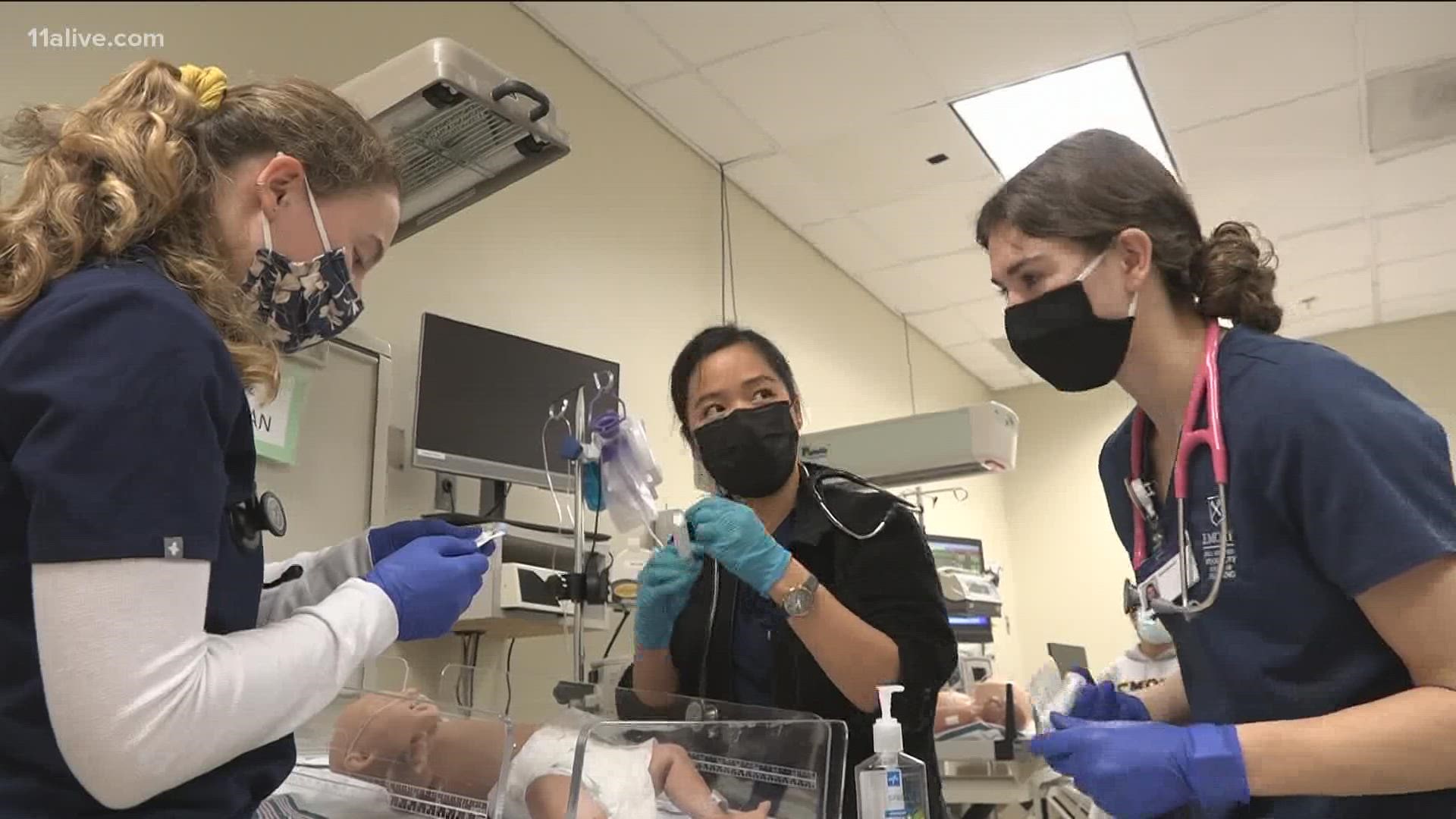ATLANTA — A statewide and even a nationwide nursing shortage existed before the COVID-19 pandemic, and as the pandemic continued, the situation has only worsened. But hope may be on the horizon.
11Alive's Liza Lucas visited the simulation lab at the Nell Hodgson Woodruff School of Nursing at Emory University where teams of nursing students are able to put their skills to the test.
"My only regret is that I didn't do nursing sooner," Kimberly Ellis told 11Alive.
Ellis is one of those who started Emory's nursing program in the middle of the pandemic, and despite industry burnout and staffing shortages, she and her classmates are committed.
"I think a lot of it comes down to caring, wanting to help," Ellis said.
"It's an interesting thing about human nature, that when there is a crisis, there are those people who run to the fire," Dean Linda McCauley explained. "And I think that's what we're seeing with nursing."
Nearly two years into the pandemic, the school is reporting what officials call an "unprecedented" uptick in nursing school applications, a 32% increase over last year.
"We had almost 3,500 applications for those 760 slots," McCauley said. "That's incredible demand."
She said the interest comes at a critical time as nursing shortages continue to impact hospitals across the country and right here in metro Atlanta.
"The vacancies in the hospitals throughout Atlanta is really scary," she added.
According to the nonprofit Georgia Center for Nursing Excellence, the state will need to replace more than 30% of its nursing workforce over the next five years due to nurses leaving, retiring, turnover and growth.
The latest figures show more than 43,000 registered nursing positions to be filled around in Georgia. That compares to less than 10,000 RN vacancies in 2010, according to the nonprofit's CEO Pat Horton, adding that turnover is at an all time high of 18.2%.
Knowing how shortages can impact care, however, is what keeps students like Ellis motivated.
"I don't want it to ever be that I have a family member or myself in the hospital and there's just not enough staff," Ellis said. "And I think I want to do the little part that I can."
"Despite the pandemic, it's even more of a reason why people are going to nursing school," she added.

